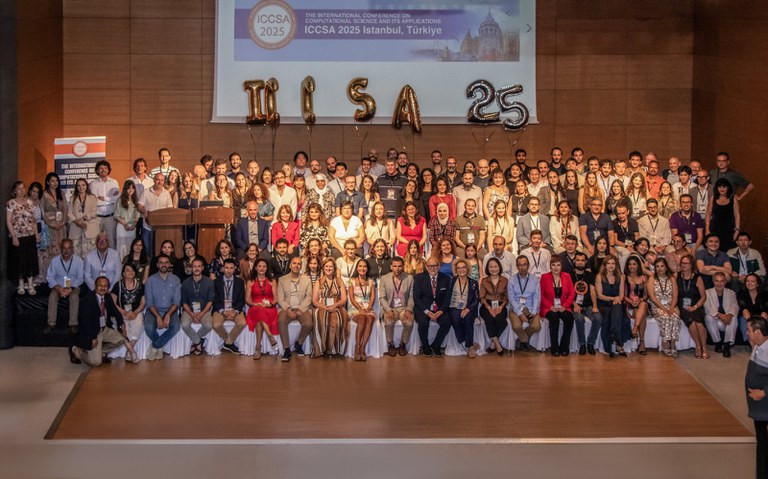At the 25th edition of International Conference on Computational Science and Its Applications (ICCSA), held this year in Istanbul, the session titled “Modelling Liveable Cities: Techniques, Methods, Challenges, and Perspectives Behind the ‘X-Minute’ City” brought together researchers to discuss innovative approaches to sustainable urban development. Chaired by Federico Mara, Valerio Cutini, Alessandro Araldi, and Flavia Lopes, the session offered a valuable opportunity to delve into the key themes of the DUT-EMC2 project.
The DESTeC group—comprising Federico Mara, Chiara Anselmi, and Federica Deri—analyzed the impact of big data on modeling decisions, conducting a preliminary assessment of the functional differences and outcomes between Google Maps and OpenStreetMap databases.
Professor Valerio Cutini highlighted the strategic role of weak ties within the urban road network, according to space syntax theory, emphasizing their potential to offer opportunities for densification within a logic of ‘proxim-city’.
Alessandro Araldi (ESPACE), in collaboration with Benjamin Wayens, presented a diachronic analysis of retail dynamics, exploring functional changes in urban commercial landscapes over time.
Flavia Lopes, a member of the SMOG group, underlined the significance of understanding mobility patterns and the infrastructure that supports them as a foundation for advancing sustainable urban planning, presenting work co-authored with Meta Berghauser Pont, Ioanna Stavroulaki, and Jorge Gil.
Each of these contributions added a crucial piece to the evolving framework of the project, addressing different yet equally essential dimensions of liveable and sustainable urban models.
All the contributions are available at the following link: Computational Science and Its Applications – ICCSA 2025 Workshops, Part VII

